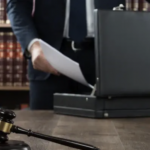What Does the Law say About Filming Someone Without Their Consent?

The law regarding filming or videoing another individual is complex.
Whether consent is required to film another person depends on who is filming, what is being filmed, where it is being filmed, and for what purpose.
There are various state and commonwealth laws that apply, and that may prevent you from using a recording obtained without a person’s consent.
Here’s what you need to know
Private vs public spaces
The rules differ depending on whether the filming is being done in a public space or a private space.
A public place is a social space that is open and accessible to everyone, like a park, or the footpath or road.
A private space is an area owned by someone, and that someone can set rules of entry and exit.
Examples of private spaces are homes, shops, sporting venues, shopping malls, schools and similar places.
Filming in a public space for a private purpose
If a video recording is taken in a public space of a person or a building etc, and the recording is for personal use or a private purpose, then permission is not required from any council or even from the person that you are filming.
The law does not generally prevent the filming of someone in a public space without their consent.
Personal use is what you naturally understand it to mean, and is any use that is not commercial. For example, if you are filming the area of Circular Quay and the Sydney Opera House for your own preservation of memories as a tourist, you don’t need the permission of Sydney City Council or the Sydney Opera House management.
Nor do you need the permission of anyone recorded in that film.
The situation is much different if you are filming in a public place for commercial purposes.
If you want to film in a public space that is owned by a council, or the NSW Government in the case of national parks or state buildings for example, it is important to seek a licence if you are intending to use the video for any type of business purpose or commercial use.
A commercial purpose is when the video recording will be used to promote goods or services, or when it generates income (either by monetary profit or by enhancing reputation).
Failure to get consent for filming in a public place for a commercial purpose can result in a fine issued by the Australian Competition and Consumer Commission (ACCC) or a breach of copyright.
Councils and government authorities in NSW are bound by the Filming Approval Act. If proper processes are followed, licences to film are usually granted.
Filming in a private space without consent
If you are on private property, it is only legal to film in the space if the owner permits. They can ask you to stop filming and evict you.
If you don’t comply, you can be liable for civil and criminal penalties related to trespass.
If you are using covert means in order to record someone, you may be charged with an offence under section 547C of the Crimes Act 1900 focused on ‘peeping or prying’ on another person.
This offence applies if a person, who is in, on or near a building without reasonable cause with the intent to peep or pry upon another person.
The Act does not contain a definition of ‘peeping’ or ‘prying’, but generally:
- ‘Peeping’ refers to looking at something through a narrow opening (such as between blinds); and
- ‘Prying’ refers to a general intrusion into private space.
This offence carries a maximum penalty of a fine of $220 or imprisonment for 3 months.
Filming a private act without consent
Filming a person engaged in a private act is an offence under section 91K of the Crimes Act 1900 which carries a maximum penalty of 2 years in prison.
To establish the offence, the prosecution must prove beyond reasonable doubt that:
- You filmed another person,
- The person was engaged in a private act,
- The filming was for your sexual arousal or sexual gratification,
- You did not have consent to undertake the filming, and
- You knew you did not have consent to undertake the filming.
The maximum penalty increases to 5 years in prison where:
- The person filmed was under the age of 16, or
- You installed a device for the purpose of the filming.
A ‘private act’ is defined as:
- A state of undress
- Using the toilet, showering or bathing
- A sexual act of a kind not ordinarily done in public, or
- Any other like activity.
Recording an intimate image without consent
Section 91P of the Crimes Act 1900 outlines the offence of a recording an intimate image without consent.
This offence applies if a person intentionally records an intimate image of another person:
- Without the consent of the person; and
- Knowing the person did not consent to the recording or being reckless as to whether the person consented to the recording,
An ‘intimate image’ means:
- An image of a person’s private parts, or of a person engaged in a private act, in circumstances in which a reasonable person would reasonably expect to be afforded privacy; or
- An image that has been altered to appear to show a person’s private parts, or a person engaged in a private act, in circumstances in which a reasonable person would reasonably expect to be afforded privacy.
The maximum penalty of this offence is a fine of $1,100 or imprisonment for 3 years or both.
Surveilling persons or stalking them?
Whilst police and licensed private investigations are allowed allowed by law to surveil, monitor and follow a person without legal consequences, this does not apply to civilians who are liable to charges of stalking or intimidation.
Section 13 of the Crimes (Domestic and Personal Violence) Act 2007 outlines an offence of stalking or intimidating another with the intention of causing the person to fear physical or mental harm. This offence carries a maximum penalty of 5 years imprisonment and/or a fine of $5,500.
‘Stalking’ includes:
- Following the other person about
- Watching or frequenting the person’s residence, work, business, or any place the other person frequents for social or leisure activities, and
- Contacting the other person through the internet or other technological means
‘Intimidation’ means:
- Conduct amounting to harassment or molestation
- Approaching the other person by any means including phone, SMS and email in order to make them fear for their safety
- Conduct causing the other person to apprehend violence or damage to themselves or their property, and
- Conduct causing a person with whom you have a domestic relationship to apprehend being injured
To establish the offence, the prosecution must prove beyond reasonable doubt that you:
- You stalked or intimidated another person, and
- You intended to cause the other person to fear physical or mental harm.
Whether the chosen target actually felt fear of physical or mental harm is irrelevant. That a person intended to cause fear is sufficient.
Going to court?
If you are going to court over allegations of voyeurism, peeping or prying or recording an intimate image without consent, call Sydney Criminal Lawyers on (02) 9261 8881 to arrange a free conference with an experienced defence lawyer who will advise you of your options and the best way forward, and fight for the optimal result.






